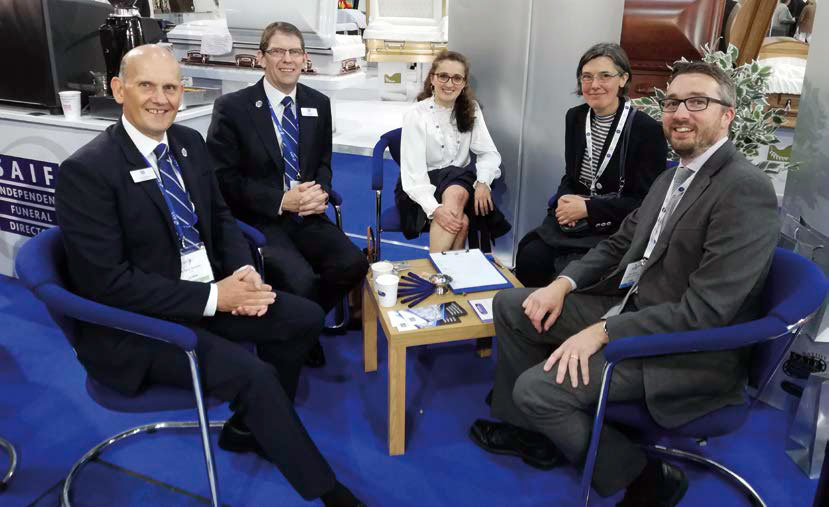SAIF Government liaison update

Paul Allcock, SAIF’s Government Liaison at Westminster, has enjoyed a busy, but rewarding, few months. Here he gives us a glimpse of his packed programme of meetings
This month has been busy with meetings and discussions with the Competition and Markets Authority (CMA), the Ministry of Justice (MoJ) and my attendance at Parliament for a hearing with the Department of Work and Pensions Committee (DWP). Each meeting proved to be both interesting and enlightening, while as often seems to be the case, leaving some challenges for funeral directors to overcome.
Firstly, SAIF Chief Executive Terry Tennens and I had a meeting with members of the CMA at the National Funeral Exhibition, followed by further discussion in subsequent weeks. I have been particularly impressed at the efforts of the CMA to gain a real insight into the experiences of the public at the time of a bereavement.
This doesn’t simply stop at the door of funeral directors. The CMA is evidently interested in the entire death pathway being experienced by our clients. This includes the experience before a funeral director is chosen. For example, are bereaved individuals being dictated to at the time of a death, or are they given freedom of choice and clarity with regard to their choices?
As you will see elsewhere in this issue and in recent newsletters to members, the CMA has appealed to all funeral directors to advise them of any formal or informal arrangements between funeral directors and care homes, hospitals and hospices which may be carried out without the prior consent of the deceased’s family.
I am aware there has been some concern over recent calls for evidence from some of our members regarding their finances and common practices. I have said throughout this process that if you can confidently claim that you offer a high standard of service and care at a fair price there is no reason not to respond willingly. And if this call for information highlights areas of inappropriate practices which prevent freedom of choice surely that has to be a good thing.
So once again, I make a plea to our members to respond to the CMA with as much information as you can to enable them to make appropriate decisions on any action that they may propose in the future.
Also this month, I attended a meeting at the MoJ about the proposed new Children’s Funeral Fund. The hope is this should be available from 23 July provided it has been passed as statutory by Government on that date.
The proposal is that cemeteries and crematoria will be able to make a claim to the fund to cover their expenses at cost for any person under the age of 18 at the time of death. Funeral directors will be able to make a claim only to fund the coffin, and for this there will be a maximum claim cap of £300. If parents decide not to use a funeral director, they are also able to make a claim from the fund for the coffin.
Additional expenses include doctors’ forms for cremation, the cost of an urn for the ashes and the fees relating to the erection of a memorial, but not the memorial itself. It seems there could be various claims from different sources for the same funeral. The MoJ insist this is what they would expect and have the systems in place to cope.
One thing to add is that if a funeral director prepares the grave for the burial in a churchyard or parish cemetery for example, then a claim can be made to cover the cost of digging the grave.
More information will be published in due course, once this fund is available. The one positive I see from a funeral director’s perspective is we would not be expected to pay any cemetery or crematoria fees on behalf of our clients as they themselves will claim directly from the fund.
I suspect funeral directors may need to advise some cemeteries and crematoria that they will not accept invoices for children’s services and guide them to the appropriate claim application process.
It is hoped claims can be made online, via a downloadable form and that claims can be made up to six months after the death.
Tags: CMA, cremation, DWP, Government, legislation, liaison, MoJ, Parliament, Paul Allcock, regulation, SAIF, Terry Tennens, UK, Westminster